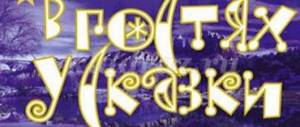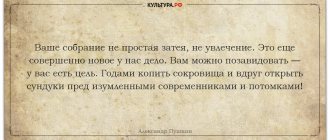USA
English Language
The presentation is intended for an open lesson in the sixth grade with in-depth study of the English language.
Slides: 13 slides Date of creation: 01/10/2014 Presentation size: 6596 KB Downloaded: 8944 times (Last time: 10/08/2020)
Read more | | Slides |
Interesting facts about Great Britain
Interesting facts about Great Britain and some surprising data help you learn more about the country. It is a natural piece of land rich in history and theories, some of which are yet to be discovered.
- A man could be jailed for life if he sticks a postage stamp with the Queen's head upside down. This is considered treason.
- The most common cause of death for men under 50 in the UK is suicide.
- The average age of a first kiss in the UK is 15.
- A 16th-century law in Britain prohibited wife beating after 9 pm, simply because the noise disturbed people's sleep.
- York, Northern England is not only the most visited city in the UK, but also in the world. More than 500 cases of ghostly sightings have been reported in the city.
- The UK has the shortest scheduled flight in the world. The flight, connecting the tiny islands of Westray and Papa Westray, lasts just 2 minutes.
- Football got its start in England when Anglo-Saxon farm workers discovered the skull of a Danish warrior. They kicked the skull around to show their anger and to entertain themselves. Early football was known as the "pin Dane head".
Great Britain has no constitution
The UK has no constitution, and the often-disapproved "unwritten" constitution is a gift to politicians.
The Constitution exists for one reason: to protect those who do not have power from those who do. What makes the Constitution work is that it is harder to change than the law, but it can be changed with enough popular support.
The Magna Carta is often described as the basis of the British constitution, but in reality it is a simple law that can be changed at any time by passing another law.
The advantage of unwritten conventions is that they can be invented or torn up by prime ministers on a whim. There are many constitutional documents such as the Succession Act, the Parliament Act (1949), the Scotland Act (1997).
They are not codified in one document (reflecting the UK's tendency to increase administrative development, in contrast to the French rule-oriented approach), so people say "there is no constitution".
The Queen does not have a British passport
While most people wouldn't be able to travel without a passport, for the Queen it's easy: she can travel abroad without a burgundy booklet.
"As a British passport is in Her Majesty's name, there is no need for the Queen to hold one," the royal family website says, adding that all other members of the royal family, including the Duke of Edinburgh and the Prince of Wales, have passports.
In the possession of Elizabeth II - a sixth of the land
Interesting facts about Great Britain tell us that Her Majesty has a large territory. This is an erroneous assumption based on misinformation on some paranoid sites.
Queen Elizabeth does not own one-sixth of the land on earth - her holdings are mostly in the UK, the largest of which is the Balmoral Estate in Scotland (approximately 50,000 acres).
The shortest war is 38 minutes
Humanity has been involved in some of the bloodiest wars in the history of this Earth, and some of the wars have been benign. Benign in the sense that the loss of life and property was very limited.
The Anglo-Zanzibar War is one of these supposedly benign wars. There are some stunning facts about this war.
- The Anglo-Zanzibar War has been called the shortest war in history, with opponents fighting for no more than 38 minutes.
- The war began at 9:02 a.m. and ended at 9:40 a.m. Eastern Time.
- The two opponents who fought the war were the British Empire and the Sultanate of Zanzibar. The British Empire emerged victorious after skirmishing with the Sultanate of Zanzibar for 38 minutes.
Interesting fact about Great Britain! Palace of the Sultan of Zanzibar after shelling - Only one British soldier was wounded during the war.
- The British soldier who was to be wounded was a senior officer. He was seriously wounded, but later recovered.
- During the war the British fired 1,000 rifle rounds, 4,100 machine gun rounds and 500 shells.
Edward VIII, Queen Elizabeth II's uncle, is a Nazi sympathizer
Edward VIII became King of England after the death of his father George V. He reigned for less than a year, abdicating the throne in 1936 to marry Wallis Simpson. At that time, the Anglican Church, led by the monarch, did not allow divorce. Therefore, King Edward VIII had a choice: love or the crown. He chose love, taking the title of Duke of Windsor.
The relationship between the Duke of Windsor and his royal family has been at the center of many storylines. In October 1937, the Duke and Duchess of Windsor visited Hitler in Berchtesgaden, where Hitler had been holidaying since the 1920s.
According to biographer Frances Donaldson, in her book Edward VIII, the Duke gave Hitler full Nazi salutes during his visit. The royal family did not support this visit.
Immediately after the war, American diplomats discovered 400 tons of German diplomatic papers at Marburg Castle . Called the Marburg Papers, they included a cache of documents damaging to the royal family.
Among these documents are details of the Nazi plan "Operation Willy", where the Germans would gain control of Great Britain and overthrow the monarchy, returning the Duke to the throne. The Germans viewed the Duke, who was perceived as ambivalent about the war, as a better ally than his successor King George VI.
To force the Duke to be on their side, German agents tried to manipulate the ostracized royals, even trying to convince the Duke that his brother, King George, was planning to kill him. The documents were handed over to the British government, which attempted to suppress them.
The most mysterious faucets
When running water was first introduced into British households, there were no such things as boilers (water heaters), so there was only one tap that supplied cold water. This cold water could be heated on a stove and used for cooking, bathing, or washing.
When boilers were available, many people simply added hot water to their existing pool/bath to avoid further costs. The two-touch format stuck around for a while and was then replaced by more convenient faucets. However, the two-faucet system is still used in many bathroom locations.
Duchess Kate fills the British treasury
Even before marrying Prince William, Middleton was in the spotlight for years while they were dating, and once it was announced that she was marrying the future King of England, she became a fashion icon.
This caused her fans to copy various royal looks. Usually, in just a couple of hours, several hundred women had an identical image of Duchess Kate, who appeared in it while jogging in the morning.
Sociologists noted that a girl who tries to copy everything like Middleton: hairstyles, clothes, shoes, spends from 200 pounds sterling. This is how Duchess Kate replenishes the British treasury.
The Queen of Great Britain has no real power
The power of the British monarchy is a fraction of what it once was. Over the years, the British government has gradually reduced the royal family's capacity. For example, the Bill of Rights of 1689 placed the power of taxation solely in the hands of Parliament.
The Queen has the power to dissolve Parliament, which means she can oust all current members of the House of Commons and call new elections. Hypothetically, Her Majesty could do this again and again until she has a Parliament she loves.
But there's a reason she can't do it. Parliament is not the same as government. The British Government is the one that actually rules the UK, and the absence of Parliament will mean that new laws cannot be created.
If the Queen had gone crazy and tried to interfere with parliamentary procedures, the British government would have done something about it. With all these powers that technically mean nothing, why didn't the UK just kick the royal family out for good?
Interesting facts about Great Britain show that 86% of Britons believe that the country should have a monarch.
However, there is another point of power that British monarchs quietly hold over their homeland that lies outside the royal prerogative: the royal family is the economic center of power.
A Brit can legally kill a Scot
In York it is legal to kill a Scot within the ancient city walls, but only if he is carrying a bow and arrow. The law is ancient and has never been repealed. He will not be a defense at a murder trial for a number of reasons, mainly because modern English and EU law is superseding the citation.
However, Scotland is by no means a nation, and so it would be difficult to arbitrarily define what constitutes a Scot without arriving at a completely arbitrary answer. A new report says it's time to bury the legislation and clean up the statute book.
“We are committed to ridding the statute book of meaningless provisions and ensuring that our laws are relevant to the modern world.”
British people can have three parents.
Interesting facts about Great Britain informed the entire Internet that children with three parents can be born in the country. The UK Human Fertilization and Embryology Authority (HFEA) has approved 2 cases at the Newcastle Life Fertility Centre.
The birth wouldn't be the first to use this technique—that milestone was reached by John Zhang and colleagues in New York in 2016. The procedure is similar to IVF, but uses genetic material from three people.
It was designed for women who have genetic mutations in the DNA of their mitochondria, the organelles that power the cell. Because this DNA is only passed on to babies from their mothers, these babies can be born with fatal diseases.
MRI techniques essentially replace the woman's defective mitochondrial DNA with a donor. The resulting embryo's DNA will mostly come from the two parents who provided the egg and sperm, but a tiny fraction—a fraction of a percent—will come from the donor.
An official law was passed that allowed children to be born from three parents. Many British believers were against it for one reason: they believe that those who accepted the innovation are unbelievers and are “badly joking” with God. But parliament believes the opposite: this is a big step in medicine, which will reduce the proportion of genetic diseases and lead to an increase in healthy population.
Interesting facts about the royal family
There are interesting facts about the royal family that few people know. Great Britain is one of those countries in which traditions, customs and strange laws play one of the most important roles. It is because of this that fascinating customs about the royal family are observed here.
- At the christening they eat a 7-year-old cake. During the christening of Prince Louis, which took place on July 9, 2020 at St. James's Palace in London, the royal family served guests a seven-year-old cake. The treat may seem stale, but it's actually a rather sweet British custom.
- They always travel with black clothes. The royal family needs to pack a black ensemble in their bag every time they travel abroad.
- The Queen celebrates 2 birthdays. She has an official birthday, which is celebrated on different days in different countries of the Commonwealth of Nations. The second is her actual birthday: April 21, the day she was born in 1926. The Queen prefers to celebrate her actual birthday privately with her family, but the official one is a national day marked with a parade and mass celebrations.
- They are not allowed to play Monopoly. Back in 2008, the prince was given the board game Monopoly. The donor probably didn't expect a strange response to the kind gesture: "We're not allowed to play Monopoly at home," Prince Andrew said.
- They don't have a last name. There's a reason why people don't hear Prince George and Princess Charlotte's last name - they don't actually have one. Technically, since 1960, the royal surname has been Mountbatten-Windsor, which is a component of the Royal Household name and Prince Philip's pre-monarchy surname.
- They should not eat shellfish . In England, there is an old rule that the royal family is never served shellfish to avoid food poisoning.
Interesting facts about the royal family, strange laws and the great educational center - Great Britain, replenish the Internet with new information.
And taking this into account, we can sum it up by saying that history, begun in 1837, will continue to develop only in a positive direction.
Article design: Vladimir the Great





